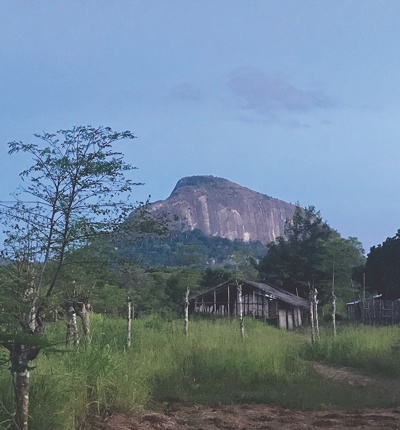
UN conference updates activists, NGOs and lawyers on battle against abuse in mining industry
Leigh Day solicitor Matthew Renshaw and paralegal Ana Rizelo report back on legal redress for human rights abuses in the global mining industry as highlighted at a recent UN conference.
Posted on 06 March 2020
Following our firm’s work in a landmark claim against ruby miner Gemfields over human rights abuses in Montepuez, Mozambique, a team from the international department was invited to speak at the UN Conference on Public Interest Litigation which was organised by the UN Office of the High Commissioner (OHCHR).
We accompanied Daniel Leader to the conference in Maputo, Mozambique, which was attended by Mozambican activists, NGOs, civil society groups and lawyers and we were able to answer questions about the practicalities involved in bringing the case against Gemfields Ltd which was settled in January 2019.
On the Montepuez Ruby Mine case-study panel, Daniel drew from his experience in litigating environmental and human rights cases from many African and Latin American countries to provide attendees with an overview of how such cases are executed and strategized.
He was succeeded by Momade Aboo Bacar, a Mozambican lawyer who collaborated with Leigh Day from the start of the Montepuez Ruby Mine case.
Mr Aboo Bacar highlighted the extensive discussions he held with Leigh Day with regard to the possibility of bringing the case in the Mozambican courts.
After careful consideration, he and Leigh Day jointly decided that they would recommend to the victims that the English courts would be the most appropriate avenue to obtain remedy.
Matthew explained the methodology involved in such a complex case with hundreds of claimants.
He explained how we organised medical assessments of lead claimants – it included the transportation of international medical experts to Mozambique and the transportation of victims to other Mozambican provinces to obtain further diagnostics.
He also explained the process of quantifying each one of the cases and Leigh Day’s interactions with various reputable Mozambican jurists.
Ana addressed some of the attendees’ questions on practicalities such as contacting clients who are not based in the UK.
The conference had begun with a presentation by Paula Simas, OHCHR Mozambique’s Coordinator, on the impacts of the extractive industry on human rights, and the role of public interest litigation.
Ms Simas discussed the evolution of the concept of business and human rights and referred to cases that shaped the area, including the Shell/Nigeria oil spill cases brought by Leigh Day.
She emphasised the importance of public interest litigation cases in setting precedents that are capable of both providing redress to the victims and generating wider repercussions to the society.
Ms Simas noted the obstacles victims are faced with when they try to access justice in certain national jurisdictions.
As an alternative to that, she suggested that bringing extra-territorial cases might be a way to confront the power imbalance between multi-national companies and communities with a view to achieving justice.
The ongoing debates with regard to the drafting of a binding business and human rights treaty were also noted. Richard Meeran, Leigh Day Partner and Head of the International Department, has acted as an expert for Ecuador in relation to the treaty
Ms Simas’s presentation was succeeded by keynotes from Alda Salomao, a representative of the Mozambican National Human Rights Commission. Ms Salomao endorsed the significance of such cases in driving changes in the society and reflected on the challenges human rights advocates face in pursuing such cases in Mozambique.
Nevertheless, she hoped that Leigh Day’s Montepuez Ruby Mine case will draw attention to the fact that there is potential to bring those cases to Mozambican courts when fundamental rights are violated.
Leigh Day is hopeful that the independent Operational Grievance Mechanism agreed with Gemfields in the context of the settlement reached between the parties will serve as a national and international example of best practices, and that its legacy will bring positive impacts on the local communities and individuals who were affected by the company’s operations.


